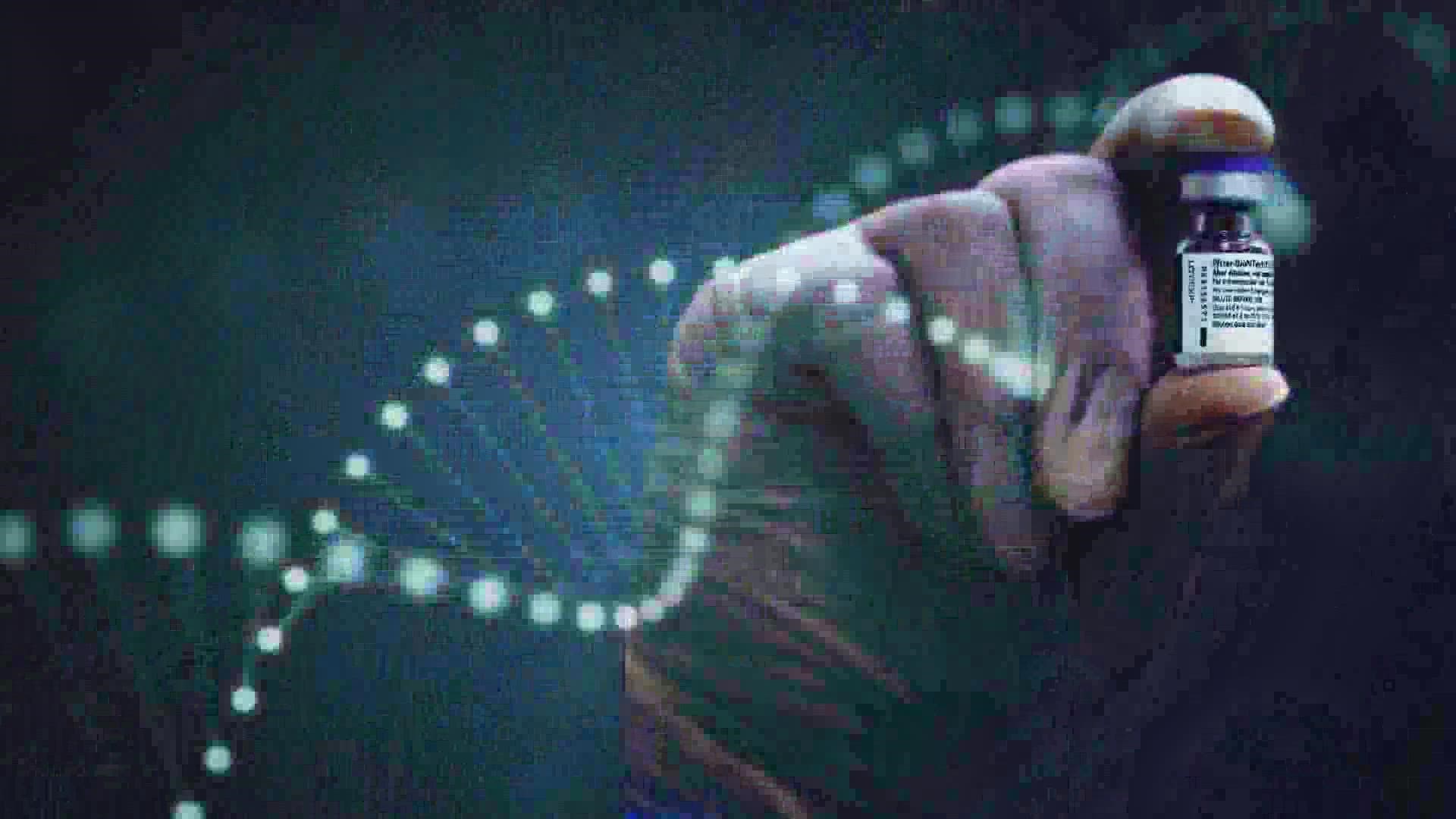PORTLAND, Maine — In the first days of September 2021, state and federal health agencies started a renewed push to debunk myths that the COVID-19 mRNA vaccines alter a person's DNA.
The claim has gained new traction at a time when Maine's ICUs reached record levels of COVID-19 patients, 95 percent of whom are unvaccinated, according to Maine CDC director Dr. Nirav Shah.
THE QUESTION
Do the COVID-19 mRNA vaccines alter my DNA?
THE SOURCES
Maine CDC director Dr. Nirav Shah
THE ANSWER
FALSE, the COVID-19 mRNA vaccines do not alter your DNA.
WHAT WE FOUND
Researchers have been studying and working with mRNA vaccines for decades, according to the U.S. CDC.
mRNA vaccines have been studied before for flu, Zika, rabies, and cytomegalovirus (CMV). As soon as the necessary information about the virus that causes COVID-19 was available, scientists began designing the mRNA instructions for cells to build the unique spike protein into an mRNA vaccine.
COVID-19 mRNA vaccines give instructions for our cells to make a harmless piece of what is called the “spike protein.” The spike protein is found on the surface of the virus that causes COVID-19.
- First, COVID-19 mRNA vaccines are given in the upper arm muscle. Once the instructions (mRNA) are inside the muscle cells, the cells use them to make the protein piece. After the protein piece is made, the cell breaks down the instructions and gets rid of them.
- Next, the cell displays the protein piece on its surface. Our immune systems recognize that the protein doesn’t belong there and begin building an immune response and making antibodies, like what happens in natural infection against COVID-19.
- At the end of the process, our bodies have learned how to protect against future infection. The benefit of mRNA vaccines, like all vaccines, is those vaccinated gain this protection without ever having to risk the serious consequences of getting sick with COVID-19.
They cannot give someone COVID-19.
- mRNA vaccines do not use the live virus that causes COVID-19.
They do not affect or interact with our DNA in any way.
- mRNA never enters the nucleus of the cell, which is where our DNA (genetic material) is kept.
- The cell breaks down and gets rid of the mRNA soon after it is finished using the instructions.

